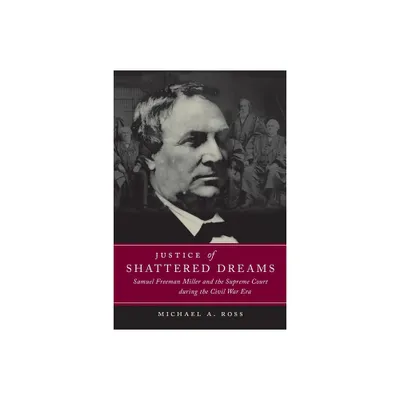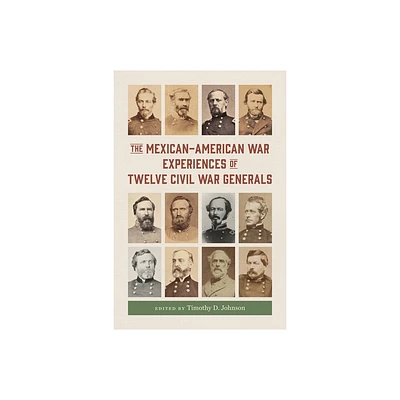Home
Millenarian Dreams and Racial Nightmares: The American Civil War as an Apocalyptic Conflict
Loading Inventory...
Barnes and Noble
Millenarian Dreams and Racial Nightmares: The American Civil War as an Apocalyptic Conflict
Current price: $50.00


Barnes and Noble
Millenarian Dreams and Racial Nightmares: The American Civil War as an Apocalyptic Conflict
Current price: $50.00
Loading Inventory...
Size: Hardcover
*Product Information may vary - to confirm product availability, pricing, and additional information please contact Barnes and Noble
In
Millenarian Dreams and Racial Nightmares,
John H. Matsui argues that the political ideology and racial views of American Protestants during the Civil War mirrored their religious optimism or pessimism regarding human nature, perfectibility, and the millennium. While previous historians have commented on the role of antebellum eschatology in political alignment, none have delved deeply into how religious views complicate the standard narrative of the North versus the South.
Moving beyond the traditional optimism/pessimism dichotomy, Matsui divides American Protestants of the Civil War era into “premillenarian” and “postmillenarian” camps. Both postmillenarian and premillenarian Christians held that the return of Christ would inaugurate the arrival of heaven on earth, but they disagreed over its timing. This disagreement was key to their disparate political stances. Postmillenarians argued that God expected good Christians to actively perfect the world via moral reform—of self and society—and free-labor ideology, whereas premillenarians defended hierarchy or racial mastery (or both). Northern Democrats were generally comfortable with antebellum racial norms and were cynical regarding human nature; they therefore opposed Republicans’ utopian plans to reform the South. Southern Democrats, who held premillenarian views like their northern counterparts, pressed for or at least acquiesced in the secession of slaveholding states to preserve white supremacy. Most crucially, enslaved African American Protestants sought freedom, a postmillenarian societal change requiring nothing less than a major revolution and the reconstruction of southern society.
Millenarian Dreams and Racial Nightmares
adds a new dimension to our understanding of the Civil War as it reveals the wartime marriage of political and racial ideology to religious speculation. As Matsui argues, the postmillenarian ideology came to dominate the northern states during the war years and the nation as a whole following the Union victory in 1865.
Millenarian Dreams and Racial Nightmares,
John H. Matsui argues that the political ideology and racial views of American Protestants during the Civil War mirrored their religious optimism or pessimism regarding human nature, perfectibility, and the millennium. While previous historians have commented on the role of antebellum eschatology in political alignment, none have delved deeply into how religious views complicate the standard narrative of the North versus the South.
Moving beyond the traditional optimism/pessimism dichotomy, Matsui divides American Protestants of the Civil War era into “premillenarian” and “postmillenarian” camps. Both postmillenarian and premillenarian Christians held that the return of Christ would inaugurate the arrival of heaven on earth, but they disagreed over its timing. This disagreement was key to their disparate political stances. Postmillenarians argued that God expected good Christians to actively perfect the world via moral reform—of self and society—and free-labor ideology, whereas premillenarians defended hierarchy or racial mastery (or both). Northern Democrats were generally comfortable with antebellum racial norms and were cynical regarding human nature; they therefore opposed Republicans’ utopian plans to reform the South. Southern Democrats, who held premillenarian views like their northern counterparts, pressed for or at least acquiesced in the secession of slaveholding states to preserve white supremacy. Most crucially, enslaved African American Protestants sought freedom, a postmillenarian societal change requiring nothing less than a major revolution and the reconstruction of southern society.
Millenarian Dreams and Racial Nightmares
adds a new dimension to our understanding of the Civil War as it reveals the wartime marriage of political and racial ideology to religious speculation. As Matsui argues, the postmillenarian ideology came to dominate the northern states during the war years and the nation as a whole following the Union victory in 1865.


















